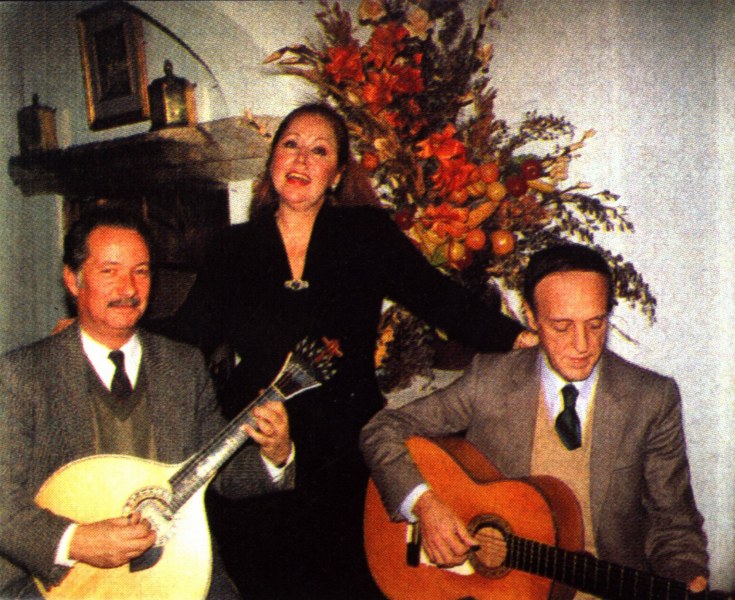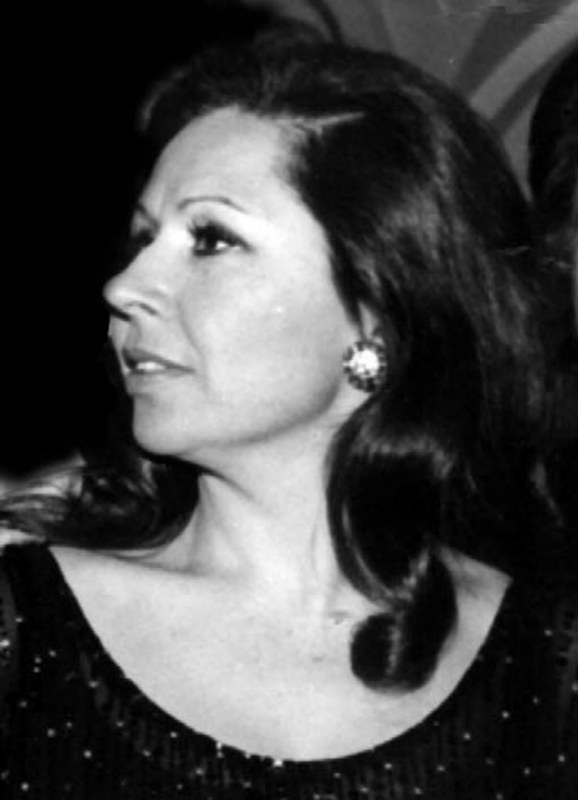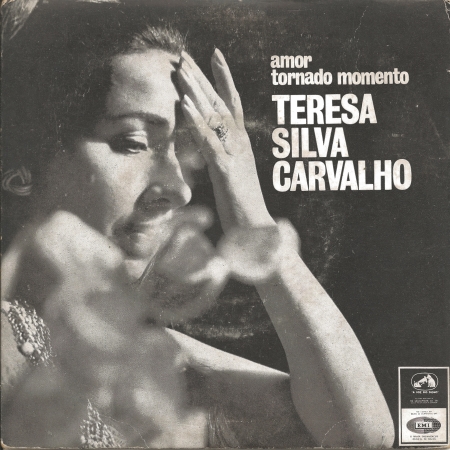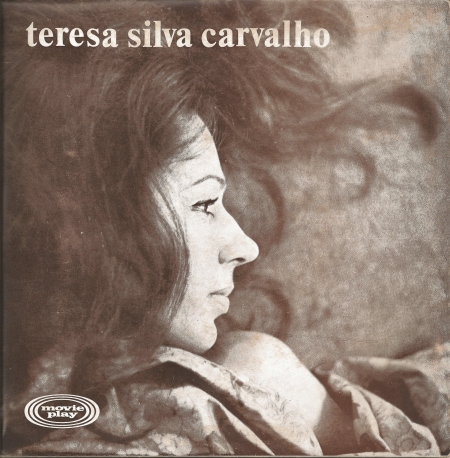Know more:
Teresa Silva Carvalho
(N. 8 September, 1935 - M. September, 1935)Teresa Silva Carvalho stands out in fado and Portuguese popular music as a talented performer who lent her voice to the interpretation of selected themes among the best authors of national poetry and music. As Ary dos Santos wrote on the back cover of one of her records, “Teresa Silva Carvalho is not just a case of Fado. It is also a case of Poetry. (…) A talent as sensitive as it is intelligent, the delicacy of an expression as musical as it is poetic. ” (in EP Movieplay SON100018).
The beginning of her artistic journey has a first impulse when she performs live, for the first time, at the age of 18, in Fão, Ofir, at the time of the "Cortejo dos Banhistas", integrated in a charity show.
A new milestone for her artistic career will be the participation in the “Nova Onda” program of Emissora Nacional, directed by Maria Leonor, which presented new upcoming artists that interpreted foreign and Portuguese themes. Teresa Silva Carvalho sang the themes “Sur ma vie” (a success by Charles Aznavour) and “O Fado do Castanheiro”, written by João de Vasconcelos e Sá, with music by Pedro Rodrigues and popularized in the voice of Maria Teresa de Noronha.
Despite these experiences and singing lessons with professor D. Maria Amélia Duarte D'Almeida, Teresa Silva Carvalho also continued her studies and finished her degree at the Hotel Studies School. She was a music teacher at the Vaz Serra Institute, in Cernache do Bonjardim, in the 1950s and 60s, signed up with the Ministry of Foreign Affairs and left, in 1965, for the “Expo Portugal de Hoje”, in Rio de Janeiro. It would be in Brazil that she would participate in her first television program. Also on the other side of the Atlantic, she performs live in several typical Portuguese restaurants.
On her return to Portugal, João Ferreira-Rosa invites her to sing at “Taverna do Embuçado”, in Alfama, where she will be part of the professional cast for several years.
In 1969, she recorded her first album for the label Tecla, an EP with the title “Sol nulo dos dias vãos”, followed by the EP “Um pouco mais de sol” and the LP “Teresa Silva Carvalho” in which she gathers themes of the first two discs. The following year, in 1970, Teresa Silva Carvalho received the Revelation Press Award (Fado), awarded by the Union of Journalists.
For the publisher Valentim de Carvalho, she records the EP “Amor Tornado Momento”, where she presents the theme “Amar”, a poem by Florbela Espanca with an original melody by Teresa.
Teresa Silva Carvalho combines the rigorous choice of the poetic repertoire with her extraordinary interpretive capacity, but also with her potential as a composer. In addition to the aforementioned “Amar”, Teresa Silva Carvalho musicized poems by the most prominent Portuguese authors such as “Sonho de Incerteza” (poem by Antero de Quental), “Barca Bela” (poem by Almeida Garrett), “Árvore do Alentejo” ( poem by Florbela Espanca), “Canção de Primavera” and “Lamento” (poems by José Régio), among others.
In 1976 she released several EPs and the LP "Fados", by Orfeu, and the following year she participated in the Festival RTP da Canção - "As Sete Canções", with the song "Canção sem grades" (Rita Olivais - Manuel José Soares) which will be edited as a single, with the theme “Ícaro” (José Régio - José Luís Tinoco) as side B. She returned to participate in the RTP Festival da Canção in 1979, with the theme “Cantemos até ser dia”, written by Pedro Osório.
During the 1970s, Teresa Silva Carvalho performed several times in the showroom of the Hotel Balaia in Albufeira, where she worked as Public Relations Director.
Her album “Ó rama, ó que linda rama”, produced by Vitorino, is published in 1977, with a huge success. In addition to the iconic title theme, a popular Alentejo song, the album included the songs “Mas que fresca mondadeira”, a poem by Francisco Martins Ramos and “Litania para um amor absente”, poem by Luigi (pseudonym of Luís Oliveira de Andrade), both with songs by Vitorino, several songs by José Afonso, such as “Canto moço”, “Redondo vocábulo”, “Mulher da erva” and “Verdes são os campos”, a poem by Luís de Camões.
After the success of “Ò rama, que linda rama”, Teresa Silva Carvalho continued to participate in several concerts, appeared punctually on television programs and made several tours in Canada and the United States but, by option, she left the show business.
Her last album was published in CD format by Strauss, in 1994, under the title “Canções Gratas” and records new songs and re-recordings of themes from her repertoire.
Source:
http://www.macua.org/biografias/teresasilvacarvalho.html
http://www.jornalistas.eu/?n=456
http://fes79.no.sapo.pt/
Museu Fado collection and data provided by private individuals

João Torre do Vale, Teresa Silva Carvalho e Fernando Alvim, Restaurante Michel, 1990

Teresa Silva Carvalho, s/d | undated
-
Amar Teresa Silva Carvalho (Florbela Espanca / Teresa Silva Carvalho)

